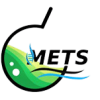Processed Food Nutrition Value Testing
Middle East Testing Services and Research Center, accredited, full service analytical laboratory, specializes in microbiological analysis for the food, beverage and environmental industries. Food safety is an integral part of the production of all foods and the shared responsibility of all segments of the supply chain. In recent times there has been increased awareness for the need to evaluate the food safety practices in the production of agricultural products. We have extensive experience and the analytical capability in:
- Routine microbiological testing
- Resolving processing problems involving spoilage or pathogen contamination
- Assisting with regulatory matters such as USDA or FDA detained product
- Providing accurate results for HACCP or customer requirement
- Testing of FDA detention seafood imports such as Salmonella, Listeria, light filth, and organoleptic decomposition
- Pathogen Analysis
Sugar Profile Test
It is generally accepted that the amount of invert sugar increases with decreasing syrup light transmission (from lighter to darker grades), the composition of sugars within different grades needs to be characterized. Determination of the characteristic chemical composition of each grade proves detrimental in knowing the various syrups chemistry and potentially provides a tool which can be used in the detection of syrup adultered by artificial decolourization. To acquire this information tests are done to know the characteristic sugar composition of each syrup grade.
Ready to Eat Food Labelling:
Food labelling offers a great deal of information on most packaged foods. The label offers complete, useful and accurate nutritional information. The government encourages food manufacturers to improve the quality of their products and help the consumer make healthier food choices. The consistent format helps consumer to directly compare the nutritional content of various foods.
Fatty Acid Composition Analysis:
Current interest in fatty acids and trans-fatty acids in food materials has been increasing. Fatty acid is an organic acid found in fats, oils, and lipids. It can be classified according to chain length, short chain (2-4 carbons), middle chain (5-10 carbons), and long chain (more than 11 carbons). The tests for fatty acids are performed to obtain its complete profile.
Vitamins in Food:
Vitamins are substances that our body needs to grow and develop normally. There are 13 vitamins our body needs. They are vitamins A, C, D, E, K and the B vitamins(thiamine, riboflavin, niacin, pantothenic acid, biotin, vitamin B-6, vitamin B-12 and folate). Accurate vitamin testing is essential to ensure that declared levels are correct, especially if a company is making a claim about a product. Our laboratory provides the latest, most reliable and sensitive techniques to analyze for a wide range of vitamins.
Minerals in Food:
Minerals help our body grow, develop, and stay healthy. The body uses minerals to perform many different functions — from building strong bones to transmitting nerve impulses. The two kinds of minerals are: macro minerals (calcium, phosphorus, magnesium, sodium, potassium, chloride, and sulphur and trace minerals (iron, manganese, copper, iodine, zinc, cobalt, fluoride, and selenium). Our test offers a comprehensive range of accredited tests to satisfy regulatory requirements.
Trans Fats in Food:
Trans fat is the common name for unsaturated fat with trans-isomer (E-isomer) fatty acid(s). It has the configuration of a double carbon–carbon bond, trans fats are sometimes monounsaturated or polyunsaturated, but never saturated. Trans fats occur during the processing of polyunsaturated fatty acids in food production. Our laboratory can analyze the synthetic trans fats in foods using a gas chromatograph with flame ionization detection (GC/FID. This technique allows a separation and quantitation of the trans fats as well as other fats (obtaining a fat profile).
Cholesterol Estimation:
Cholesterol is a lipid (fat) which is produced by the liver. Cholesterol is vital for normal body function. Every cell in our body has cholesterol in its outer layer. High cholesterol level leads to multiple diseases that include coronary heart disease, angina, arthrosclerosis etc. Testing of cholesterol levels in food is essential to keep a check on the amount of cholesterol a consumer intake.
Stability Testing:
Any new drug substances and products should be evaluated to demonstrate that, as appropriate, light exposure does not result in unacceptable change. Normally, photo stability testing is carried out on a single batch of material selected.
Shelf Life Estimation:
The shelf life of a food can be defined as the time period within which the food is safe to consume and/or has an acceptable quality to consumers. The shelf life of a product begins from the time the food is prepared or manufactured. Its length is dependent on many factors including the types of ingredients, manufacturing process, type of packaging and how the food is stored. It is indicated by labelling the product with a date mark. Shelf Life estimation test are done by microbiological examination, chemical, physical and sensory evaluation.


